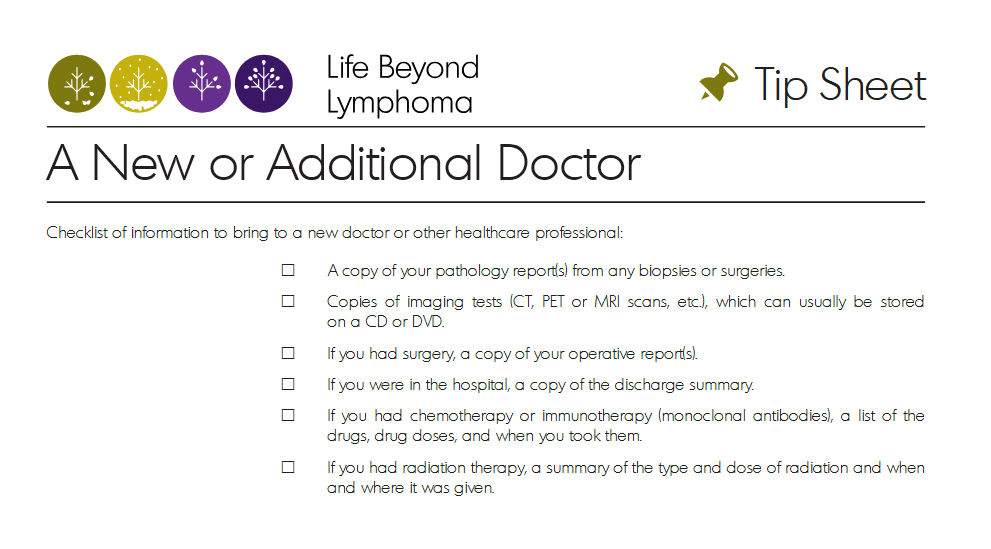At some point after your treatment ends, you may find yourself seeing a new doctor who does not know anything about your medical history. You may also see other healthcare professionals such as a dentist, neurologist, physiotherapist or naturopath. It’s important that you be able to give your new doctor(s) the details of your diagnosis and treatment. Gathering these details and keeping them together in one place soon after treatment may be easier than trying to get them at some point in the future. Make sure you have the following information readily available:
- A copy of your pathology report(s) from any biopsies or surgeries
- Copies of imaging tests (CT, PET or MRI scans, etc.), which can usually be stored on a CD or DVD
- If you had surgery, a copy of your operative report(s)
- If you were in the hospital, a copy of the discharge summary
- If you had chemotherapy or immunotherapy (monoclonal antibodies), a list of the drugs, drug doses, and when you took them
- If you had radiation therapy, a summary of the type and dose of radiation and when and where it was given
Some people feel uneasy asking their healthcare team for their records. But in fact, this is a very proactive step. It helps bring closure to the diagnosis and treatment phase, ensures continuity of care, and helps you to be your own advocate and experience expert.
Your new doctor may want copies of this information for his/her records, but always make sure to keep copies for yourself as well.






